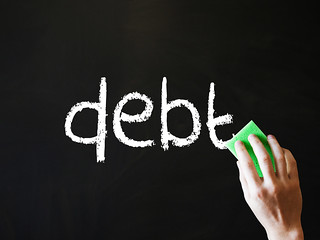The Irish Personal Insolvency Framework
Until very recently you had few options if you were resident in Ireland and struggling to repay your debts. You could become bankrupt, but that process would last for twelve years (so almost nobody did). It might have been possible to enter into a debt management plan to reduce your monthly repayments, but there was no certainty of creditor acceptance or any guarantee that debt collection activity would stop.
For most people the option of choice has been to do nothing at all. It’s not that many thousands of people haven’t wanted to repay their debts; in fact the vast majority of people that are struggling with their repayments would much prefer to be in a position to keep up with their commitments. The simple fact is that if your living expenses plus debt repayments add up to more than your income something important has got to give.
When there isn’t enough money to cover everything it’s vitally important to prioritise. Paying for your home, essential services and taxes will be considered by most people to be more important than their credit cards. Putting food on the table should always be prioritised over repaying a bank loan. Being unable to repay your debts in full may follow such a prioritization exercise, but what’s the alternative if you cannot further cut costs or increase your income?
Ireland’s new personal insolvency framework has now challenged the impasse between debtors and their creditors. Following the example of many other jurisdictions, Ireland has now introduced a system of personal insolvency that will allow people to leave behind debts that they’re unlikely to ever be able to fully repay. What are the options?
Debt Relief Notices have been designed specifically for people with comparatively low levels of unsecured debts. To qualify you’ll have to be able to demonstrate to an intermediary that you have little or no capacity to afford payments towards your debts. You’ll also have to own only modest assets.
Debt Settlement Arrangements also cover only unsecured debts. You commit to pay what you can afford to pay for a defined period of time. This money will most commonly come from surplus income but might also be raised via the sale of assets. If your creditors agree to the arrangement, and you stick to your side of the deal, any debts remaining unpaid at the end of the arrangement will be written-off.
Personal Insolvency Arrangements work in a similar fashion to debt settlement arrangements but their scope extends to secured debts as well. Most frequently such secured debts will be mortgages on property. A PIA, where the terms are agreed with the creditors, should enable a debtor to get back to a position of solvency provided that they meet their obligations under the arrangement.
Bankruptcy is changing. Where discharge used to occur after twelve years the standard term will now be reduced to three. This reduced term compares favourably with debt settlement and personal insolvency arrangements (though the full period of repayments, where affordable, might be longer). Unlike a DSA or PIA there’s no requirement that you contribute towards your debts if it’s assessed as being unaffordable for you to do so.
With four workable solutions in place for people to deal with unaffordable debts it’s now likely that thousands of people around Ireland will take action. There’s little point in continuing to suffer financially and personally if it’s clear that your debts simply aren’t manageable. Where doing nothing used to be logical, people have now been granted the privilege of choices that will allow them to regain control over their family finances.
The starting point is to take advice on your situation. An adviser, such as those employed at Debt Advice Ireland, will talk to you about your financial and personal circumstances. They’ll create a record of your debts, assets, income and expenditure. Some people prefer for this process to take place face-to-face, but it’s generally possible to provide good advice via the telephone as well.
This recorded information will help the adviser (or personal insolvency practitioner) to suggest options to you that could resolve your debt problems. Picking up the telephone to ask for advice takes courage, but it’s the first important step towards achieving a fresh financial start in the future.
Author – Visit our debt help forum to find out more about personal insolvency arrangements and other debt solutions. Ireland is undergoing many changes in the area of personal insolvency and our website’s advice team can help you navigate these changes.

Category: Debt






